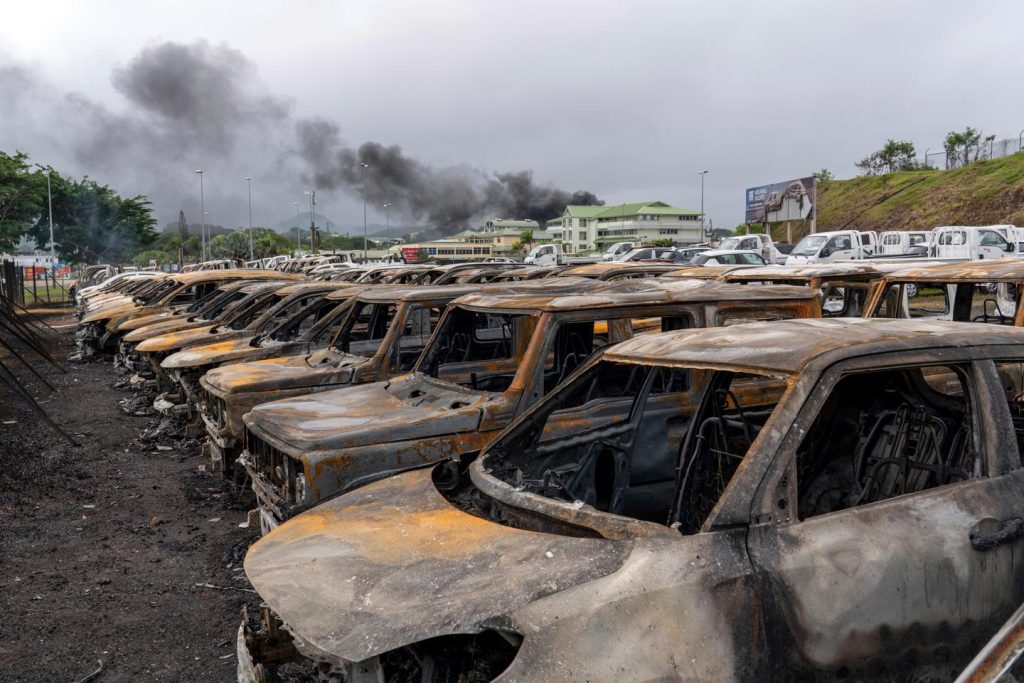After riots broke out in Noumea, New Caledonia on May 15, 2024, a row of burnt cars is lined up. Following the fall of its government, New Caledonia was only able to adopt two out of three fiscal reforms requested by the state, leading to a suspension of part of the promised emergency financial aid until the vote on the third reform. The initial agreement signed between the South Pacific territory and the government stipulated the payment of 231 million euros, on the condition that New Caledonia adopts three fiscal reforms before December 31: the creation of a waiting day in case of sick leave in the civil service, an increase in the solidarity contribution, and a rise in the general consumption tax (TGC, equivalent to VAT).
The first two measures were adopted without difficulty on Monday, December 23, but the fall of the government led by independence advocate Louis Mapou on Tuesday halted the voting process. In a show of solidarity in response to what Mr. Mapou labeled a “political dirty trick”, independentist members of the Congress refused to sit on Thursday, leading to the postponement of the TGC text examination. Several local non-independentist elected officials expressed concerns about a risk of non-payment of aid which could potentially lead to the supervision of New Caledonian territories.
In a joint letter released on Saturday evening and seen by Agence France-Presse (AFP), Prime Minister Francois Bayrou and Overseas Minister Manuel Valls confirmed that a strict application of the agreement would have required a withdrawal of the payment. However, facing the imminent risk of discontinuation of public services and social assistance, the government decided that since two out of the three conditions were met, the aid would be unlocked up to two-thirds of the initially planned amount, which is 154 million euros.
The remaining third of the funds will be unlocked in 2025 once the condition regarding a TGC reform is adopted by the Congress. The resignation of members from the center-right loyalist party Calédonie Ensemble caused the downfall of the local government, and a new executive will be elected on Tuesday, January 7. The situation in New Caledonia highlights the delicate balance between political decisions and their impact on the economy and welfare of the population, as well as the complex dynamics between the territory and the central government.


